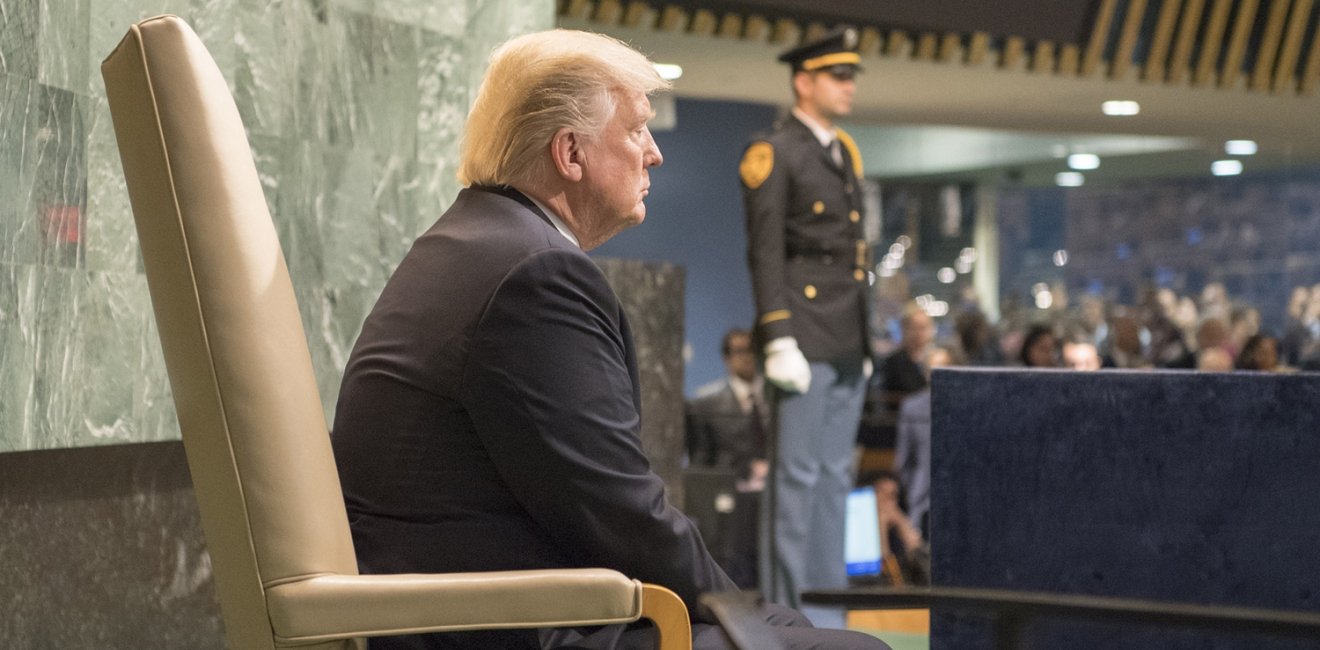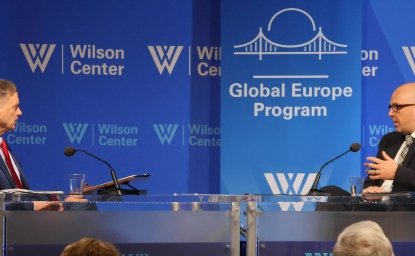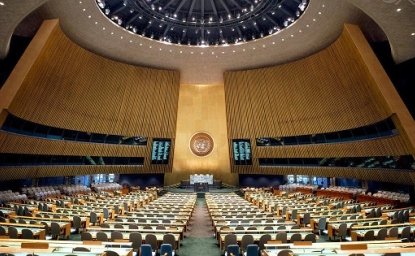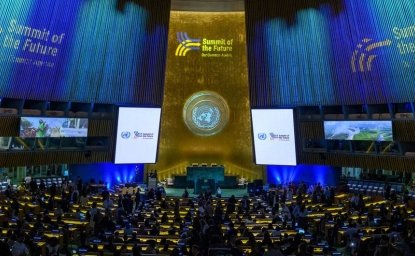Engineers use a signal-to-noise ratio to compare the strength of a desired signal to the level of background noise in audio and visual data recordings. The term is also used metaphorically to describe when key messages either penetrate or get lost in political chatter. President Trump’s speech at the United Nations was an exercise in just that.
The president has a habit of making comments in the moment, without consulting his advisers. But he has also stuck to his teleprompter on occasions like his address before Congress in February. Clearly the two sides of Trump reach very different audiences. When he is disciplined, some who are usually detractors have even called him “presidential.”
For a speech as important as the one delivered Tuesday, he was probably advised by seasoned military experts like Defense Secretary James Mattis and Chief of Staff John Kelly. Both understand what it’s like to face down the barrel of a gun and a variety of other lethal weapons, and what consequences lie ahead if leaders are not careful about what they say. Kelly paid the highest price when he lost a son in battle.
Presumably, they outlined the substance Trump should cover and possibly prepared a first draft. So did they lose control of the president’s speech? My answer is mixed: The substantive signals were there, but they were drowned out by the bombastic noise.
What if the president had delivered “draft one” of his U.N. speech? My guess is that draft one included careful language at the front about the role of the U.N. in the world and the positive impact it can have, and did not include such words as “rocket man” and “loser terrorists.”
Tuesday was a missed opportunity. Trump may have won the street, but he lost the hall.
While North Korea’s nuclear program is at the forefront of concern in this country and around the world, the president could have made his point about Kim Jong Un’s regime in a measured way to prevent escalating tensions and misinterpretation by North Korea. But it would not have mollified his base, which feeds on his tweets and slogans. The same applies to his comments about Iran.
It was also notable what the president did not say. He didn’t slam Muslims or mention his wall on the border of Mexico. Both would have further offended the international audience, and no doubt his national security team urged they not be included.
When you peel away the inflammatory language, here’s what the president really said: The world should reject threats to sovereignty (think: Ukraine), we should condemn and counter humanitarian abuses by North Korea in addition to its nuclear program, Iran should cease its bad behavior across the Middle East (even Congress has gone on record to address this), and a political solution is needed to end the crisis in Syria. Most would consider these positions fairly mainstream.
Surely his advisers hoped that the responsible content in the speech would be heard. A few commentators, like the Washington Post’s David Ignatius, did get the message. But the image of Kelly’s head in his hands says a lot: The signal, sadly, got lost in the noise. In his speech to the U.N. in San Francisco in 1948, Harry Truman warned the founders that “we must deny ourselves the license to do always as we please.” I bet Trump’s national security staff agrees.
The hope is that people who needed to hear what he really said did and that the toxic bombast stops here. If the more recent announcement that South Korea, China and Japan will join in stricter coercive sanctions against North Korea sticks, our president may get some of that audience back. But such an announcement should have been a centerpiece of his speech. Tuesday was a missed opportunity. Trump may have won the street, but he lost the hall.
The opinions expressed here are solely those of the author.
This article was originally published on The Hill.





